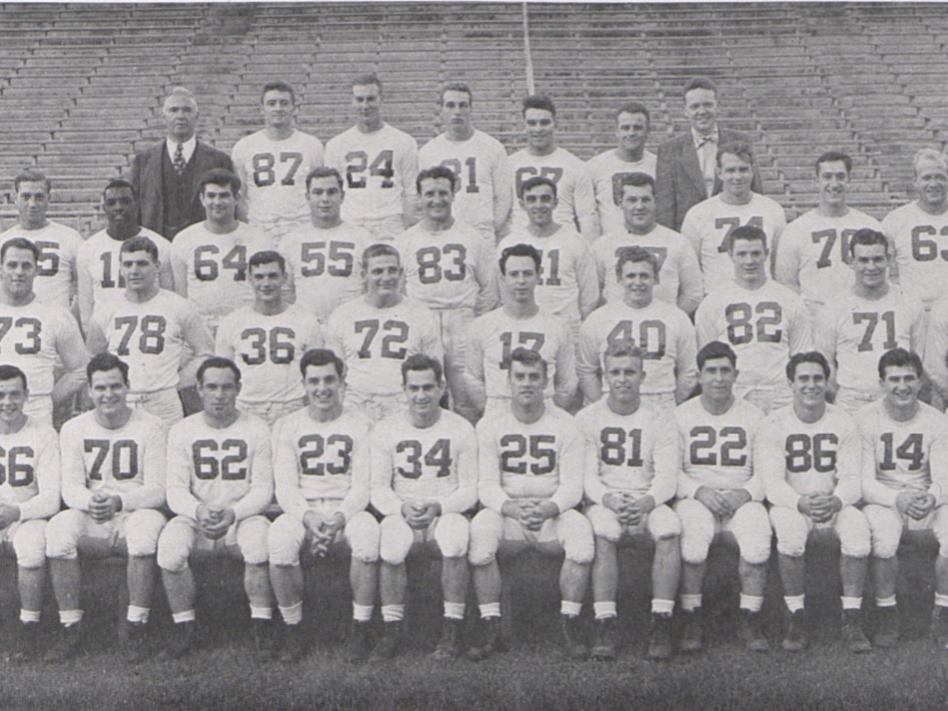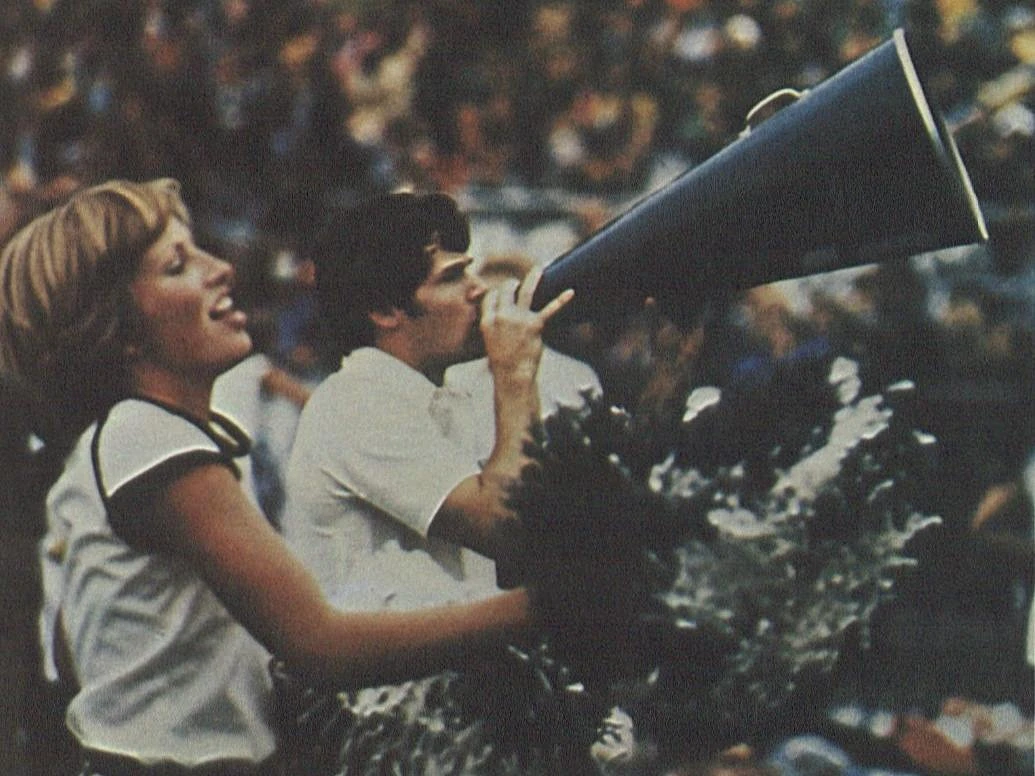UNIVERSITY PARK, Pa. — The words “We Are Penn State” were cheered for the first time in Beaver Stadium in 1976 by cheerleaders determined to fire up fans, according to this historical account written by Penn State historian Lou Prato. While the phrase took some time to catch on, by 1981 the cheer had become a permanent part of the language of every Penn Stater.
However, Penn State legend also dates the origins of “We Are” back to 1946, when the Nittany Lion football team made history for refusing to play in a game against then-segregated University of Miami. When told they must leave their Black players at home, the Penn State team instead voted to cancel the game.

The 1947 Nittany Lion football team. Credit: Penn State University Archives. All Rights Reserved.
The following season, Penn State was invited to the Cotton Bowl but was again asked to leave their two Black athletes — Wally Triplett and Dennie Hoggard — at home. The Nittany Lions refused that request, with captain Steve Suhey reportedly saying, “We are Penn State,” indicating that they were a unified team. The full team ended up going to the Cotton Bowl on Jan. 1, 1948, in a matchup against Southern Methodist University in Dallas, Texas. With Dallas still operating under Jim Crow laws at the time, it was a game that would become symbolic of desegregation in athletics. Triplett and Hoggard became the first African Americans ever to play in the Cotton Bowl.

Wally Triplett (right) advances the football in the Cotton Bowl on Jan. 1, 1948. Credit: Penn State University Archives. All Rights Reserved.
Triplett caught the tying touchdown in that game, with the final score 13-13. He went on to become the first African American draftee to play in the NFL.
While "We Are" has been a common chant and spoken phrase among Penn Staters for decades, it became a physical permanent fixture in 2015 when the "We Are" sculpture, the gift of Penn State's class of 2013, was installed on the University Park campus. It has become a fan-favorite spot for photos, with the reflective polished steel inviting visitors to see themselves in the sculpture, embodying the unity that "We Are" inspires among Penn Staters.

The We Are Sculpture, a gift from Penn State's class of 2013, is located at the corner of Curtin Road and University Drive on the University Park campus. Credit: Ann Taylor-Schmidt / Penn State. Creative Commons
Founded in 1855, Penn State has a long history of traditions and values that make up the fabric of who we are as a community. Learn more about the University's traditions on the Penn State Traditions page.
LAST UPDATED JULY 24, 2023
Skip past news feed


